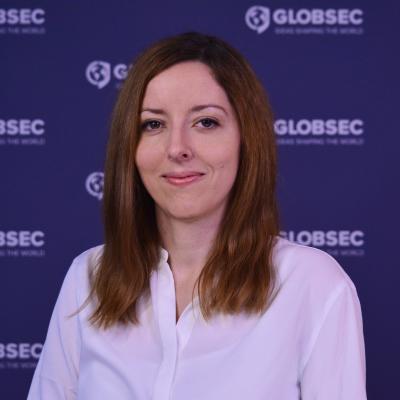Majority of Slovaks Believe in Conspiracy Theories

According to the latest public opinion poll, which GLOBSEC Policy Institute conducted via Agency FOCUS on representative sample of 1048 respondents in Slovakia in November 2017, 52.2% of respondents declared agreed with the statement that “there are secret groups/societies that control development of events in the world and attempt to create a totalitarian world order.” Interestingly, the most vulnerable group age is neither the youngest nor the oldest. More than 59% of respondents aged 55-64 years believe in this conspiracy. On the other hand, “only” 28% of young Slovaks aged 15-17 years agree with this statement.[1]
When less is sometimes more
The data from the GLOBSEC public opinion poll [2] shows that the level of education reached by respondents actually makes a difference whether one believes in conspiracy theories or not. However, while 55.8% of respondents with a university education and 54.5% of respondents with high school degree think that the world is governed by secret society/groups, only 43.6% of people with elementary education think similarly.
Furthermore, the rural-urban cluster division with the assumption that less people living in urban areas would believe in conspiracy theories was not confirmed. Instead 58.7% of respondents living in a municipality with more than 100,000 inhabitants, the most of all categories of municipalities, agree with this conspiracy statement. Slovakia has only two so big cities with over one hundred thousand inhabitants – Košice and the capital city, Bratislava.
Another interesting observation can be drawn from the analysis of attitudes according to the usage of the Internet. Over 53% of Slovaks that use the Internet daily agree with the conspiracy statement, but 49.8% of Slovaks who do not use the Internet at all think similarly.
The belief in conspiracies is further supported by the distrust of Slovaks in the media. Polling findings suggest that 49.6% of Slovaks do not believe that information provided by the media is objective about events in Slovakia and around the world. It seems that the Slovaks are following the general trend of the decline of trust in media captured by Edelman Barometer 2018, in which media has become the least trusted institution. In 22 out of 28 analysed countries, respondents did not trust their media. This trend was detected also in Slovakia. Comparing our data from public opinion polls conducted in April and November 2017, it is possible to observe a 9% rise in distrust of media among Slovaks.
Why do people believe in conspiracy theories?
Well, there are plenty of answers for that question. Psychology Today elaborates the research of British psychologist Karen Douglas and her colleagues, who claim that reasons for believing in conspiracy theories can be grouped into three categories: the desire for understanding and certainty; the desire for control and security; and the desire to maintain a positive self-image.
The need to feel in control is further supported by other researchers who claim a correlation between a personal need for structure and tendency to believe in a conspiracy theory. In addition, a sense of being in a community of like-minded peers leads to adjustment of attitudes. This builds on Leon Festinger’s theory of comparison processes from 1954, which elaborated the influence of social groups - the more people believe in a piece of information, the more people are likely to accept it as true. There’s also the work of Joseph Uscinski, professor and co-author of the 2014 book American Conspiracy Theories, who claims that conspiracy theories are for losers and a convenient scapegoat to blame for one’s failures.
No matter what the reason is, people have a tendency to question more and use one or a combination of the abovementioned factors to justify their conscious or subconscious decisions, beliefs or fears. The universe is full of unknowns that people do not know or cannot explain. However, people should learn to think critically and take into consideration all the information and facts.
In order to support critical thinking and media literacy, GLOBSEC Policy Institute in cooperation with the Central European University in Budapest and the University of Matej Bel in Slovakia has developed a free online course on Media and Disinformation. While the belief that the moon is just a hologram might seem harmless, unwillingness to vaccinate your children can cause their death. And death is an irrefutable fact. So please, think about the information you consume.
The size of the representative sample allows to generalize survey results on the Slovak population with a margin of error of ± 3.1%.
[2] Full analysis of public opinion poll Increasing support for the European Union and Emmanuel Macron as a positive model of the world leader is available here in Slovak only.
